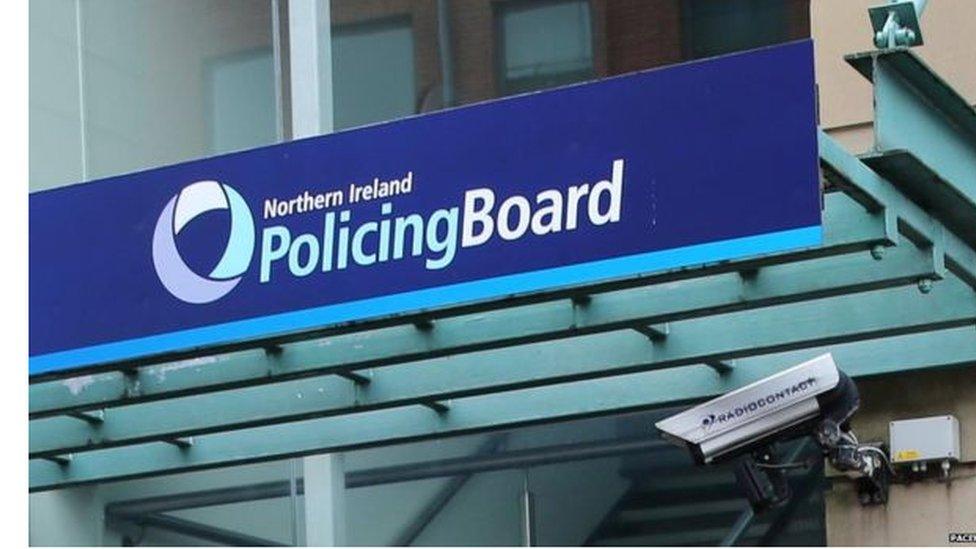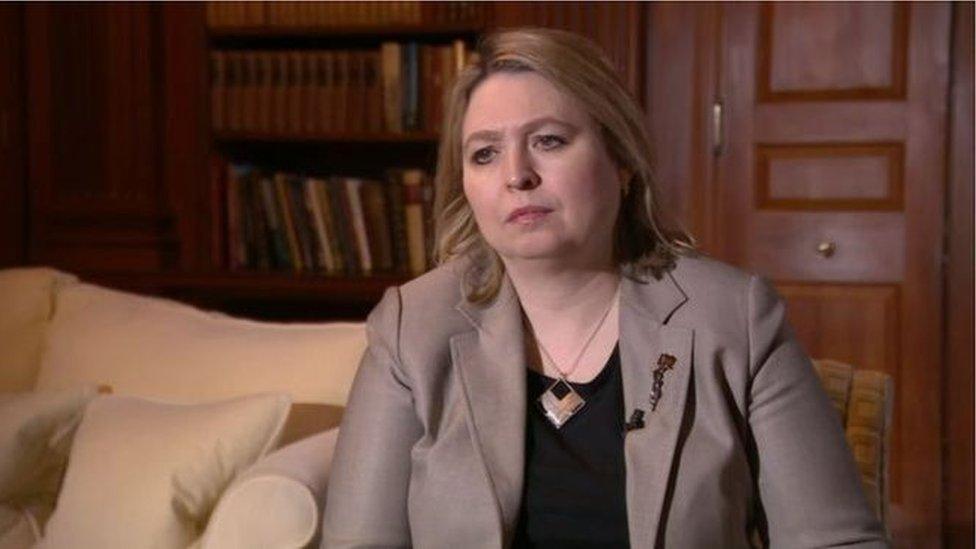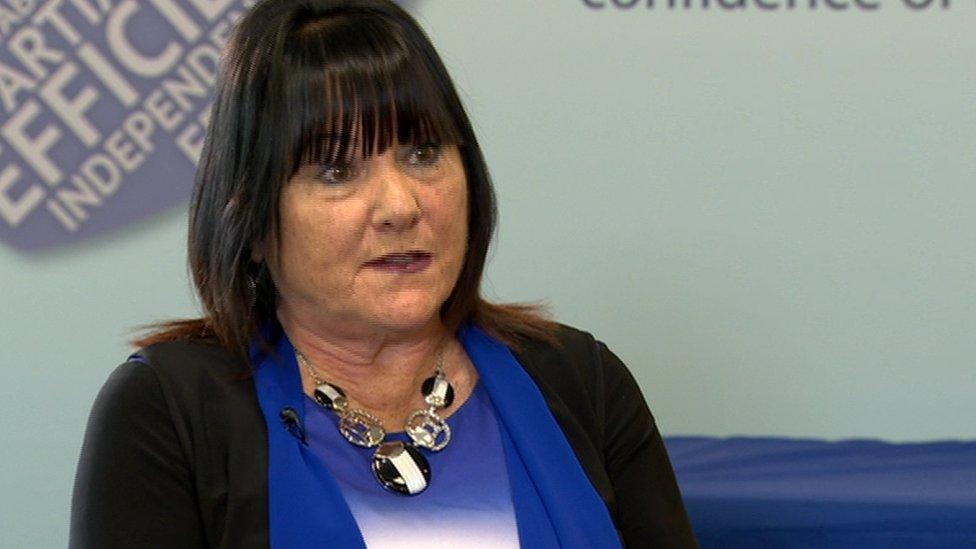Karen Bradley to move to re-establish NI policing board
- Published

The Northern Ireland secretary is to bring forward legislation in the autumn to re-establish the Policing Board, sources have told the BBC.
Karen Bradley intends to bring a public appointments bill to the House of Commons.
The Policing Board does not currently have the legal authority to oversee the work of the Police Service of Northern Ireland.
This is due to the collapse of the Stormont institutions 18 months ago.
Power-sharing in Northern Ireland broke down following a row between the DUP and Sinn Féin over a botched green energy scheme.
Both the chair of the Policing Board Anne Connolly, and the Chief Constable of the PSNI, George Hamilton, have previously said they are concerned about the lack of oversight for the PSNI in the continued absence of Stormont.
Earlier this month, Mrs Bradley was questioned about her plans for the Policing Board when she appeared before the Westminster NI Affairs committee.
She told the committee she would make a statement outlining her intentions before the parliamentary summer recess, which was meant to be 24 July.
But the recess could start sooner, when MPs debate a government motion later to move the summer break forward by five days.
The bill the secretary of state plans to bring forward would enable her to reconstitute the Policing Board's political members.
It is understood it could also allow her to appoint independent members - a power usually reserved for Stormont's justice minister.

Karen Bradley was due to make a statement about the matter to the Commons ahead of the summer recess
Three independent members' contracts expired at the end of last month.
There are also a number of pressing policing matters that would usually require to be signed off by the Policing Board - which point to the secretary of state's decision to intervene on the matter.
They include appointing a successor for PSNI Deputy Chief Constable Drew Harris, who is to become the Republic of Ireland's new garda commissioner.
Several senior police officers are also on temporary contracts and the PSNI chief constable's contract is due to expire next July.
'First step'
Policing Board chair Anne Connolly gave a cautious welcome to the news.
"We can get down to business hopefully in the autumn with a new board," she said.
"Setting up the policing board is only the first step because the policing board, when it's fully constituted, can do so much.
"But there are issues which need ministerial approval, and we either need an executive with a justice minister to do that or else the secretary of state would have to do that. She's aware of that, and that will be a decision for her."
Ms Connolly also said she was not concerned that Ms Bradley's decision regarding the Policing Board could be perceived by some as another potential step towards direct rule.
"I would prefer to have the assembly as I think it would be more clear cut for us, but whether it's the Department of Justice or the NIO, we will work with them as long as we get a board back," she said.
'Complete mess'
Former Assistant Chief Constable, Alan McQuillan, said: "No-one has been holding the police to account.
"If you look at the minutes on their website they haven't met for a long time.
"There is nobody there to scrutinise. It's clear that Karen Bradley has come to the conclusion that there is no prospect of Stormont reforming in the immediate future.
"If the chief constable decides to leave at the end of his contract, she has no mechanism to replace him. It's a complete mess."
The Policing Board was established as part of policing reforms after the 1998 Good Friday Agreement which helped end the Troubles in Northern Ireland.
It was designed to approve senior appointments and oversee the three-year policing plan.
It is supposed to have 10 politicians and nine independent members, but it has not met in full or in public since the Stormont crisis last January.
- Published12 March 2018
